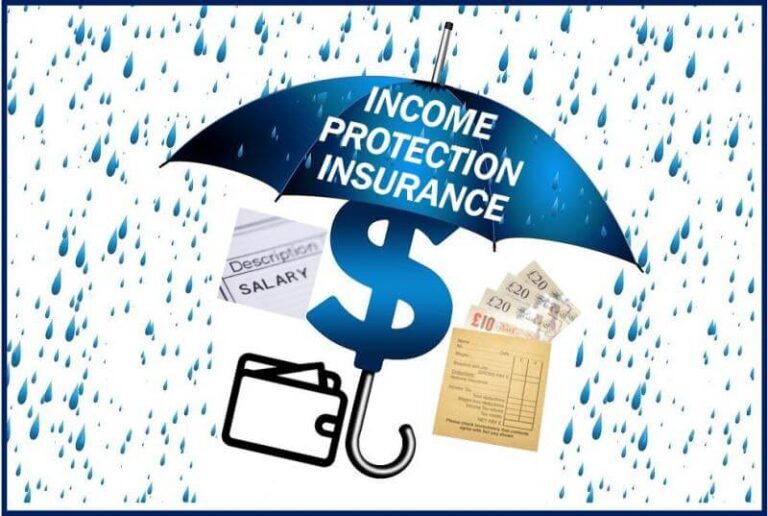Where to Sell a Life Insurance Policy | An Ultimate Guide
In this ever-changing world, life insurance policies are more than just financial assets; they are valuable resources that can be sold if circumstances change. In this article, we’ll explore the options available to individuals looking to sell their life insurance policies and the factors to consider when making this decision.
Contents
Understanding Where to Sell a Life Insurance Policy
When considering where to sell a life insurance policy, several options exist. First, you can approach the insurance company that issued the policy. They might have a surrender value or a cash value that can be paid out. However, this value is typically lower than the policy’s face value.
Alternatively, you can explore the life settlement market. Life settlement companies buy existing life insurance policies from policyholders at a higher value than the surrender value but lower than the death benefit. This option is ideal for those who no longer need the coverage and want to cash in on their policy’s value.
Another choice is viatical settlements, which are typically for individuals with terminal illnesses. Viatical settlement companies purchase life insurance policies at a percentage of the death benefit to provide immediate financial support to the policyholder.
Ultimately, the decision on where to sell a life insurance policy depends on your specific circumstances and financial needs. It’s crucial to consult with financial advisors, legal experts, and insurance professionals to make an informed choice that aligns with your goals and requirements.
Selling to the Insurance Company
Selling your life insurance policy back to the insurance company is a straightforward and convenient option. Most insurance policies have what’s called a “cash surrender value.” This is the amount the insurance company will pay you if you decide to surrender or terminate the policy before its maturity date.
Selling to the insurance company involves a few key steps:
Contact Your Insurance Company
The first step is to get in touch with your insurance company. You can usually find their contact information on your policy documents or their website. Inform them of your intention to surrender the policy.
Request a Surrender Form
The insurance company will provide you with a surrender form. This form will require your policy details and your signature. You may also need to provide a copy of your identification.
Review the Offer
Once you submit the surrender form, the insurance company will assess the cash surrender value of your policy. This amount may be significantly less than the death benefit of the policy, as it typically accounts for administrative fees and other deductions.
Receive Your Payout
If you agree with the offer, the insurance company will process your surrender and issue a check for the cash surrender value. This is generally a lump sum payment.
Selling to the insurance company is often the quickest option, as it doesn’t involve a third party. However, it’s important to note that the cash surrender value may not provide the highest financial return, and it’s typically less than what you’d receive through other methods, such as selling to a life settlement company.
Before choosing this option, carefully consider the current financial need and the long-term value of your policy. It’s advisable to consult a financial advisor to weigh the pros and cons of this choice in the context of your specific situation.
Life Settlement Companies
Life settlement companies provide an alternative option for individuals looking to sell their life insurance policies. These companies specialize in purchasing life insurance policies from policyholders, and they can offer several advantages over selling the policy back to the insurance company. Here’s how life settlement companies work:
Evaluation of Your Policy
The first step in working with a life settlement company is to contact them and provide details about your life insurance policy. This includes information about the policy type, coverage amount, age, and health status.
Policy Valuation
The life settlement company will evaluate the policy to determine its market value. They consider various factors, including the policy’s cash value, premium costs, and life expectancy.
Receive an Offer
Once the evaluation is complete, the company will make you an offer. This offer is typically higher than the cash surrender value offered by your insurance company because life settlement companies are willing to pay more for policies with a significant death benefit.
Acceptance and Sale
If you accept the offer, the life settlement company will purchase your policy. They will become the new policyholder and take over the premium payments. In return, you’ll receive a lump sum payment, which can be significantly more than the cash surrender value.
Financial Freedom
The lump sum payment can be used as you see fit, whether it’s to cover medical expenses, invest in retirement, or fulfill other financial needs. The money is yours to use as you wish.
Life settlement companies offer a valuable option for policyholders who may no longer need or afford their life insurance policies. It’s important to note that not all policies are eligible for a life settlement, and the amount offered can vary. Additionally, selling your policy to a life settlement company means you no longer retain the coverage, and the new owner will collect the death benefit when the insured person passes away.
Viatical Settlements
Viatical settlements are a specialized form of life settlement designed to assist individuals facing terminal illnesses. This unique option allows policyholders to sell their life insurance policies in exchange for a lump sum payment, which can be used to cover medical expenses, improve their quality of life, or fulfill other financial needs during a challenging and uncertain time.
Here’s how viatical settlements work
Eligibility
To qualify for a virtual settlement, the policyholder typically needs to have a life insurance policy and a terminal illness with a life expectancy of two years or less. The specific eligibility criteria may vary between viatical settlement providers.
Evaluation
The virtual settlement provider evaluates the policy to determine its value. They consider factors such as the policy’s death benefit, cash value, and premium costs. The offer will be based on the policy’s face value and the policyholder’s life expectancy.
Accepting the Offer
If the policyholder accepts the viatical settlement offer, they agree to sell the policy to the viatical settlement provider. In exchange, they receive a lump sum payment that can be used immediately. This payment is often tax-free, providing valuable financial relief during a difficult time.
No More Premium Payments
Once the financial settlement is complete, the policyholder is relieved of the burden of making future premium payments. The new owner of the policy takes over these responsibilities.
End-of-Life Benefits

Viatical settlements can provide peace of mind by ensuring that the policyholder receives financial support when they need it most. The funds can be used to cover medical treatments, improve the quality of life, or fulfill other needs during their final days.
Viatical settlements offer a compassionate solution for individuals who are battling terminal illnesses and require immediate financial assistance. It’s essential to work with a reputable virtual settlement provider and consider the terms of the agreement carefully. Policyholders should consult with financial advisors, legal experts, or healthcare professionals to ensure they fully understand the implications of the virtual settlement and how it impacts their overall financial and medical situation.
Online Marketplaces
In today’s digital age, online marketplaces have emerged as a convenient and innovative option for individuals looking to sell their life insurance policies. These online platforms connect policyholders with potential buyers, creating a competitive environment that can result in better offers. Here’s how online marketplaces for life insurance policies work:
Registration
To get started, you typically need to register on an online life insurance marketplace. During registration, you will provide details about your policy, including its type, coverage amount, and demographics.
Policy Listing
Once registered, you’ll list your policy for sale. This involves providing specific information about your policy’s terms, conditions, and any additional details that potential buyers may find relevant.
Buyer Interaction
Interested buyers will review the listings and may contact you to discuss the terms of the sale. The marketplace provides a platform for communication between policyholders and potential buyers.
Competitive Offers
Online marketplaces foster competition among buyers, potentially resulting in higher offers for your policy. This competitive bidding process often leads to better payouts compared to selling directly to the insurance company.
Acceptance of Offer
After reviewing the offers and negotiating terms, you can choose to accept an offer that suits your financial goals. Once you accept an offer, the buyer takes over the policy by paying you a lump sum amount.
Financial Benefits
The lump sum payment received from the buyer can be used for various purposes, such as covering medical expenses, investing, or simply improving your financial situation. The funds are yours to utilize as you see fit.
Online marketplaces have made it easier for policyholders to access a wider pool of potential buyers, which can translate to better financial returns. However, it’s essential to exercise caution and conduct thorough research when using such platforms. Ensuring the credibility of both the online marketplace and potential buyers is critical to a successful transaction.
Estate Planning
Incorporating your life insurance policy into your estate planning is a strategic option for those who want to ensure their policy continues to serve a valuable purpose, even after they are no longer here. This approach doesn’t involve selling the policy but rather designates how the policy benefits your heirs and estate. Here’s how estate planning with a life insurance policy typically works:
Designation of Beneficiaries
When you purchase a life insurance policy, you have the option to designate one or more beneficiaries. These are the individuals or entities who will receive the death benefit when the insured person passes away.
Estate Inclusion
By naming your heirs or estate as beneficiaries, you ensure that the death benefit is included in your estate. This means that it could potentially be subject to estate taxes, depending on the size of your estate and the applicable tax laws.
Estate Tax Planning
If your estate is large enough to be subject to estate taxes, you can work with a financial advisor or estate planning attorney to develop strategies for reducing or mitigating the tax burden. This may include using trusts, gifting strategies, or other estate planning tools.
Providing for Heirs
Life insurance can be a valuable resource for providing your heirs with financial support. It can help them cover expenses, pay off debts, or simply enjoy a more comfortable financial future. This is particularly important if your heirs rely on your financial support.
Naming a Trust
Some individuals choose to establish an irrevocable life insurance trust (ILIT) to own and manage the life insurance policy. This can help reduce estate taxes and provide more control over how the death benefit is distributed.
Policy Ownership
You can also consider transferring ownership of the policy to an heir or trust. This ensures that the policy’s death benefit is not included in your estate, potentially reducing estate tax liability.
Estate planning with life insurance is a strategic way to use your policy as a financial tool for the benefit of your heirs and the protection of your estate. It’s a complex process that should be done in consultation with legal and financial experts who specialize in estate planning.
The Importance of Due Diligence
The importance of due diligence cannot be overstated when it comes to making decisions about your life insurance policy, particularly when considering selling it or engaging in any financial transaction related to it. Due diligence is the process of conducting thorough research and assessment to make informed and prudent choices. Here’s why due diligence is crucial:
Understanding Your Options
Life insurance policies offer a range of options, from selling to the insurance company to life settlements or online marketplaces. Conducting due diligence helps you understand the pros and cons of each option, enabling you to choose the one that best aligns with your financial goals.
Policy Evaluation
Assessing the specifics of your policy is a fundamental aspect of due diligence. This involves understanding your policy type, its cash value, premium costs, and potential benefits. Knowing these details allows you to determine its market value and what you can expect to gain from selling it.
Reputation of Buyers
When selling your policy, whether to an insurance company, life settlement provider, or through an online marketplace, it’s crucial to research the reputation and reliability of the buyers. You want to ensure you are dealing with trustworthy and financially sound entities.
Financial Impact
Due diligence helps you assess the financial implications of your decision. This includes understanding the tax consequences of the sale, any fees or commissions involved, and how the lump sum payment may affect your overall financial situation.
Legal Considerations
Laws and regulations surrounding life insurance policies and their sale can vary by jurisdiction. It’s important to be aware of these legal aspects to ensure your transaction is compliant and transparent.
Consulting with Professionals
Engaging with financial advisors, attorneys, or estate planners who specialize in life insurance transactions is a key component of due diligence. They can provide expert guidance tailored to your specific circumstances, helping you make well-informed decisions.
Assessing Personal Needs
Due diligence also involves considering your own financial and personal needs. Are you selling the policy to cover immediate medical expenses, secure your retirement, or leave a legacy for your heirs? Your unique goals and circumstances should drive your decision.
Comparing Offers
If you are exploring multiple options or buyers, due diligence involves comparing offers, terms, and conditions to determine which one provides the most favorable outcome.
By conducting due diligence, you minimize the risk of making hasty or ill-informed decisions that could impact your financial well-being. It ensures that you fully understand the implications of your choices, have explored all available options, and have consulted with professionals who can provide valuable insights.
FAQs about Where to Sell a Life Insurance Policy
Who can I sell my life insurance policy to?
You can sell your life insurance policy to various parties, including the insurance company that issued it, life settlement companies, online marketplaces, and individual investors. The choice depends on your goals and financial needs.
How do you cash out a life insurance policy?
To cash out a life insurance policy, contact the insurance company, request a surrender form, fill it out with policy details, and submit it. The insurer will determine the cash value and issue a check upon approval.
How do you sell life insurance to customers?
To sell life insurance to customers, identify their needs, build trust, and present suitable policies. Explain benefits, offer competitive rates, and guide them through the application process, addressing questions and concerns to ensure their confidence in the purchase.
How much is my life insurance worth?
The value of your life insurance refers to the death benefit paid to beneficiaries. To find the cash value of your life insurance, calculate your total payments and subtract surrender fees. Remember, the value for a sale will be lower than the death benefit to allow the buyer to profit.
How do I sell my policy?
To sell your life insurance policy, evaluate its value and eligibility. Choose a suitable buyer such as an insurance company, life settlement provider, or online marketplace. Follow the buyer’s process, finalize the transaction, and receive a lump sum payment in exchange for the policy.
Conclusion
Selling a life insurance policy is a significant decision. Whether you choose to sell to the insurance company, or a life settlement provider, through online marketplaces, or incorporate it into estate planning, careful consideration, due diligence, and professional guidance are vital to ensure the best outcome aligned with your unique goals.







